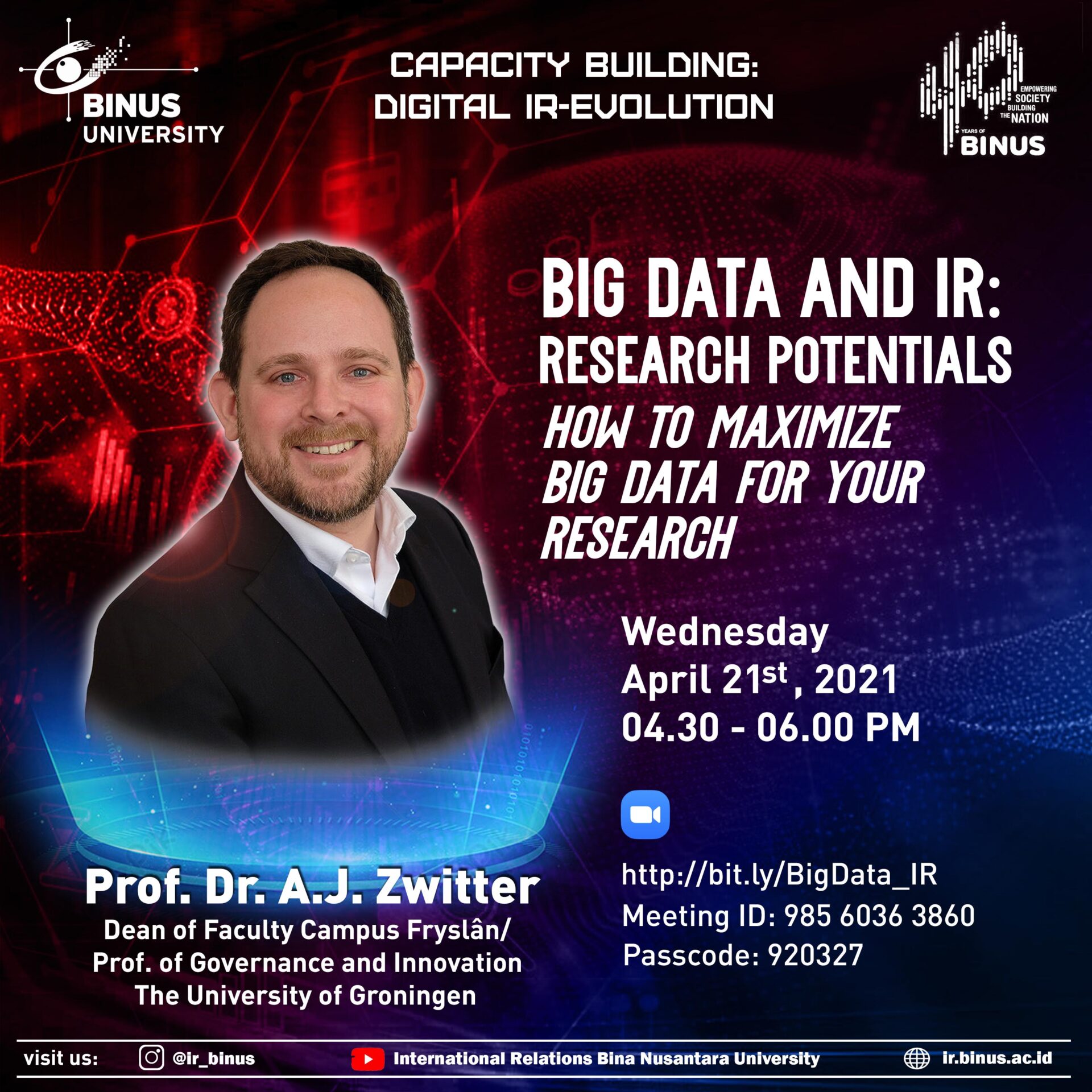Big Data and IR: Research Potentials
Big Data increasingly affects international politics in various ways. It unveils new dimensions to these changes, which we as political scientists and observers of international affairs are only now beginning to comprehend (Zwitter 2015). Thus, what is Big Data? And how do we use Big Data for our research in International Relations (IR) studies?
As part of the Department of International Relations, Binus University, efforts to support digital transformation in teaching and research, we invited prominent scholars to present their insights on the use of Big Data in IR. We designed four webinar sessions which will be attended by our faculty members and students.
The first session was successfully delivered on the 21st of April 2021 with Professor Andrej Zwitter (Chair in Governance and Innovation, University of Groningen) presenting his ideas about how IR theories need updating due to the exponential data growth over the last couple of decades. He explains that Big Data refers to the enormous amounts of data that, using sophisticated analytics techniques, can be mined for information in order to reveal patterns and spot trends and correlations.
A key idea behind the concept is that the sheer volume of data allows users to discover information—specifically, correlations and patterns—that would not be available by looking at smaller samples. It also relates to the enhanced ability to extract information from, and interpret, massive amounts of unstructured data. Another key idea is that Big Data is updated in near real-time.
Big Data has four Vs: Volume, Variety, Velocity, and Veracity. If in conventional IR theories we understand that actors are States, Companies, International Organizations, Civil society, and NGOs, in cyberspace IR actors include Digital Entities, Tech companies, Political parties, Stakeholders, Criminal organisations, and States.
In conventional international affairs we acknowledge money, raw materials and territory as key resources which require extraction through physical productivity. In cyberspace, the most valuable resource is data, it is treated like oil and users as territory, with extraction that values digital productivity.
With these vast developments future challenges of Big Data in International Relations include:
- Power shifts
- Cyber Regulation
- Resources (material and digital)
- Artificial Agency and Attribution
- Ethics of Artificial Intelligence and Autonomous Decision Making
- Data Ownership
- Digital Identity
- Blockchain
- Cyber-Governance



Comments :